I would like to preface this essay by saying that I am so unbelievably grateful to have gone on this study abroad trip. While scary initially, the experience quickly filled me with joy and excitement. While my time in Ghana was brief I was able to make the best out of my experience through exploring and building new connections! Some of which I will never forget. As a Ghanaian American who never had the opportunity to explore my culture outside of the US, visiting Ghana this summer was a significant experience that contributed to who I am now as a person. Even though I am Ghanaian myself, my decision to come to Ghana was something I gave a lot of thought to. I wanted to still be challenged while enjoying my experience abroad which is something that ISEP allowed for me to do. With me being in an environment (my hostel)
surrounded by a lot of different people with different backgrounds, languages, and life stories I
was able to get the most out of my experience in Ghana through simple conversations and
friendships.
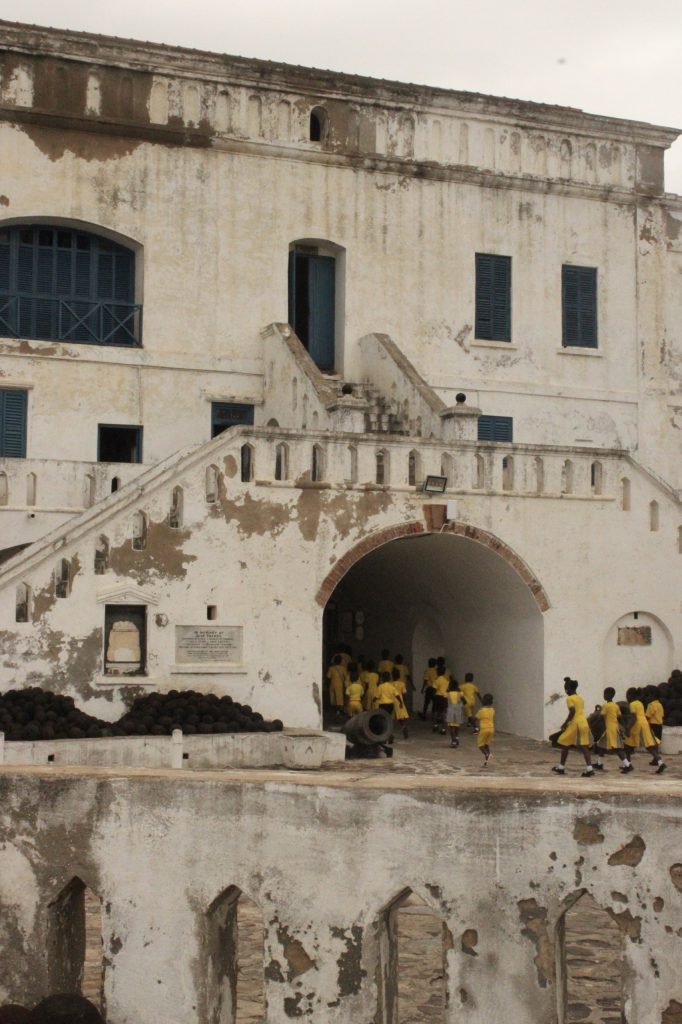
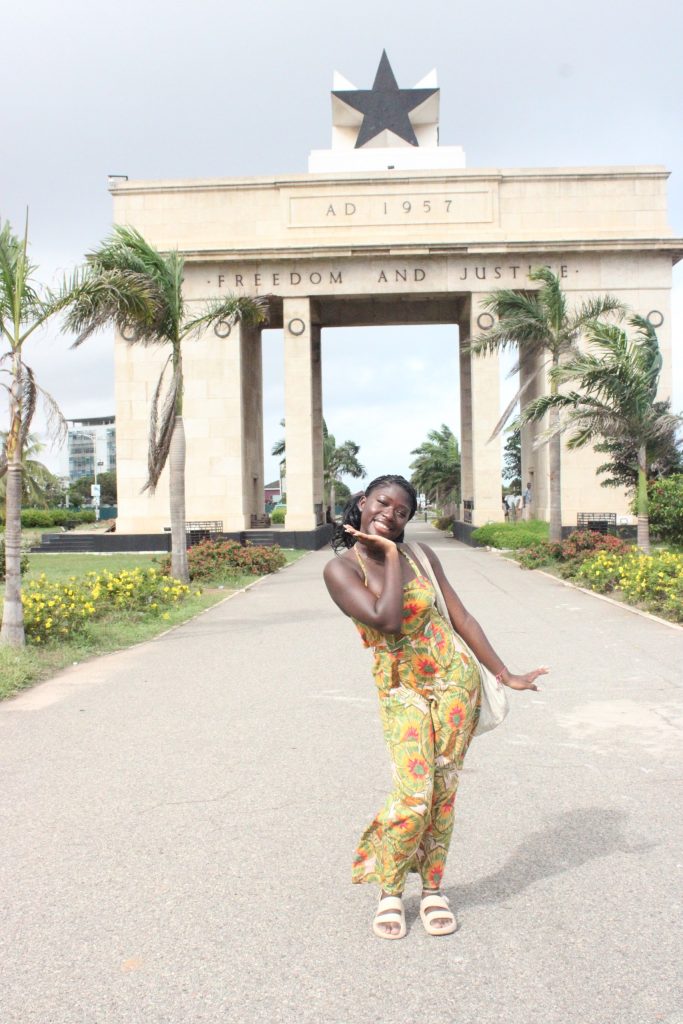
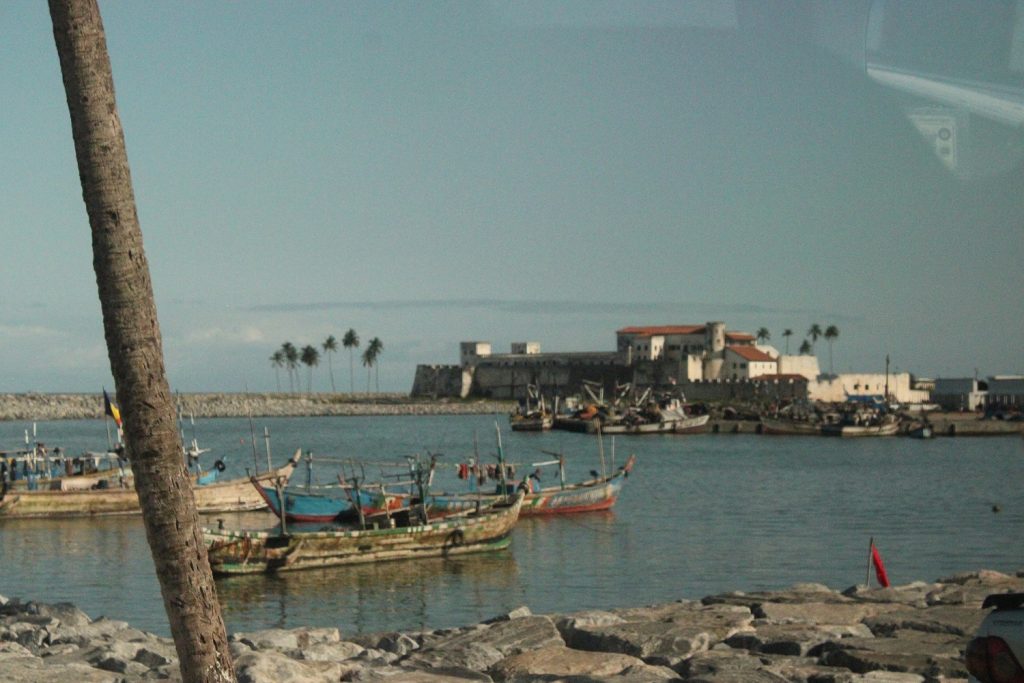
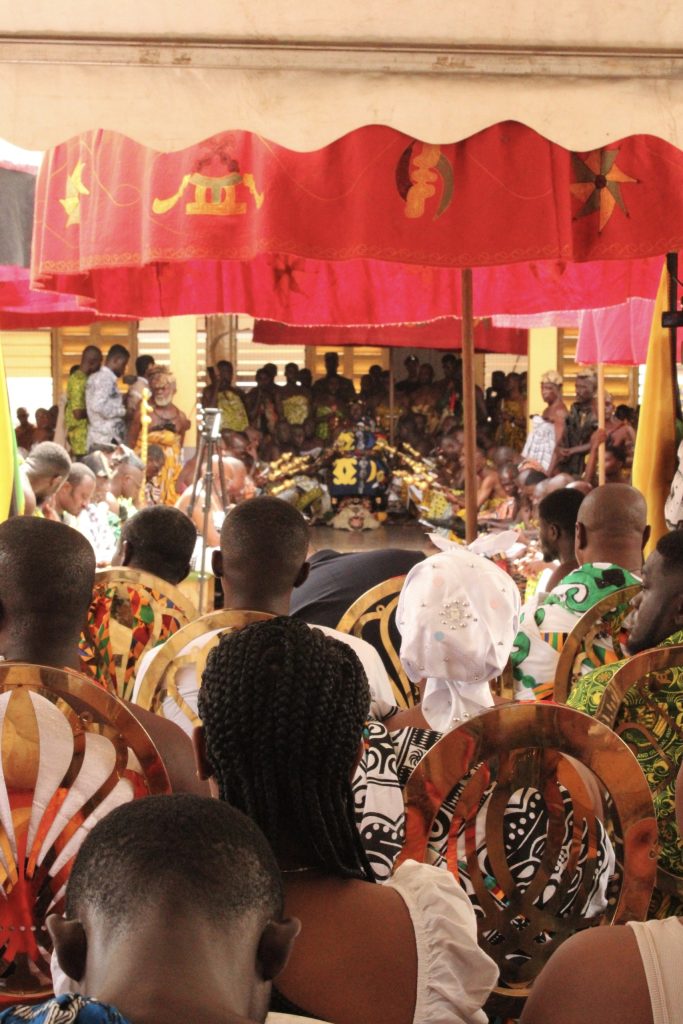
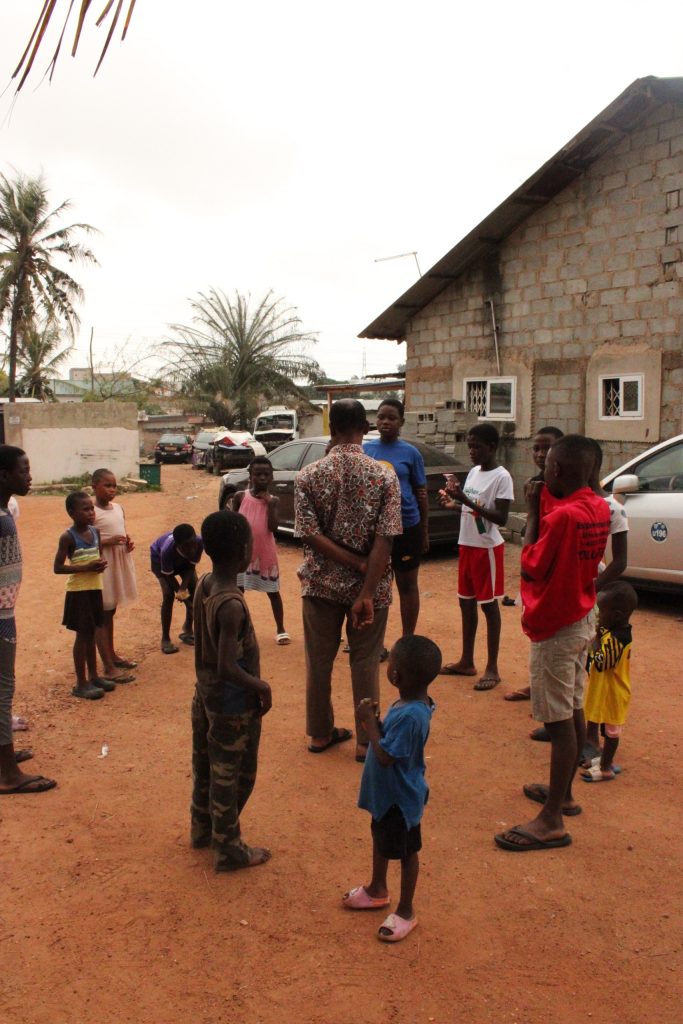
One of our first trips was to Cape Coast where we were able to really take in the geographical diversity of Ghana. Within Accra, you can eventually find yourself getting comfortable with the city aspect of Ghana: Cars, street vendors, noise, and crowds. While enjoyable, Cape Coast along with other areas in Ghana are the complete opposite. Outside of the city, Ghana is very tropical and close to the coast (hence its previous name the Gold Coast). It’s quiet and calm outside of the main roads and generally has welcoming people from the few interactions we had with locals. We also were able to experience Ghana’s past by visiting one of the many slave dungeons known as the Cape Coast Castle and the Elmina Castle (included in photos). Along the region, we also saw the fishing communities that lay along that coastal region of Ghana. It was interesting to view the whole separate community outside of Accra and to see how very similar yet different they are. As a Ghanaian, I’ve only grown up with one view of Ghana and Ghanaians. It is one that is familiar to me with the same people and communities I’ve grown up in. To be able to get the chance to view these different subcommunities I was able to expand my view of not only Ghana culture but other cultures as well. For example, within our hostel we had a French community who although connected with a language were vastly different from each other. This allowed me to make a conscious effort to try to get to know the different communities in which I found myself in during my trip. Learning more about what make an individual and a group of individuals who they are.
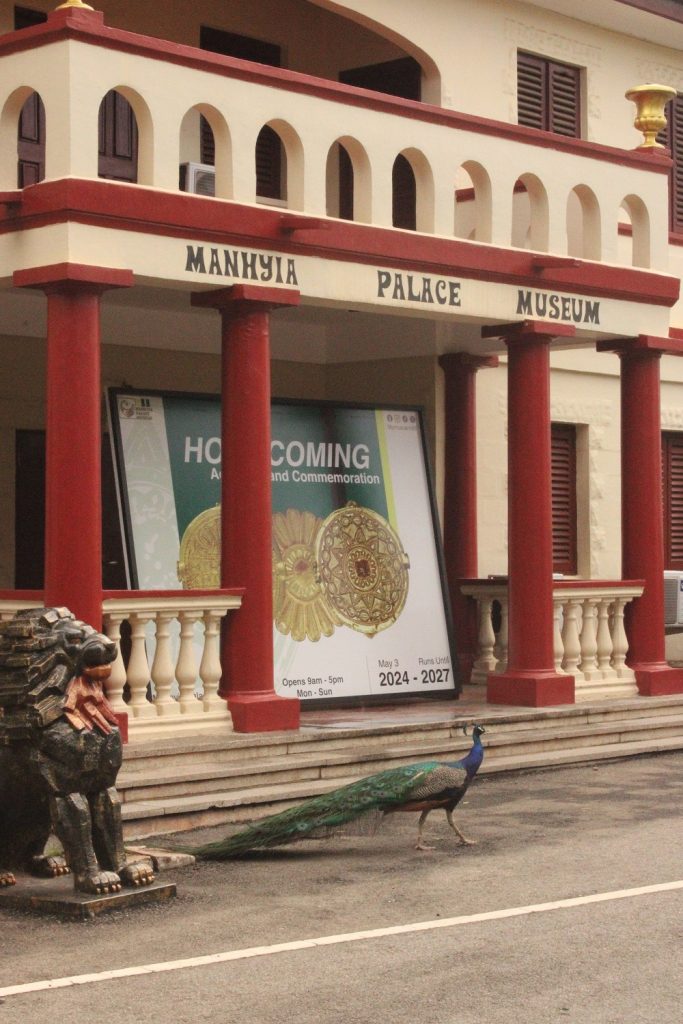
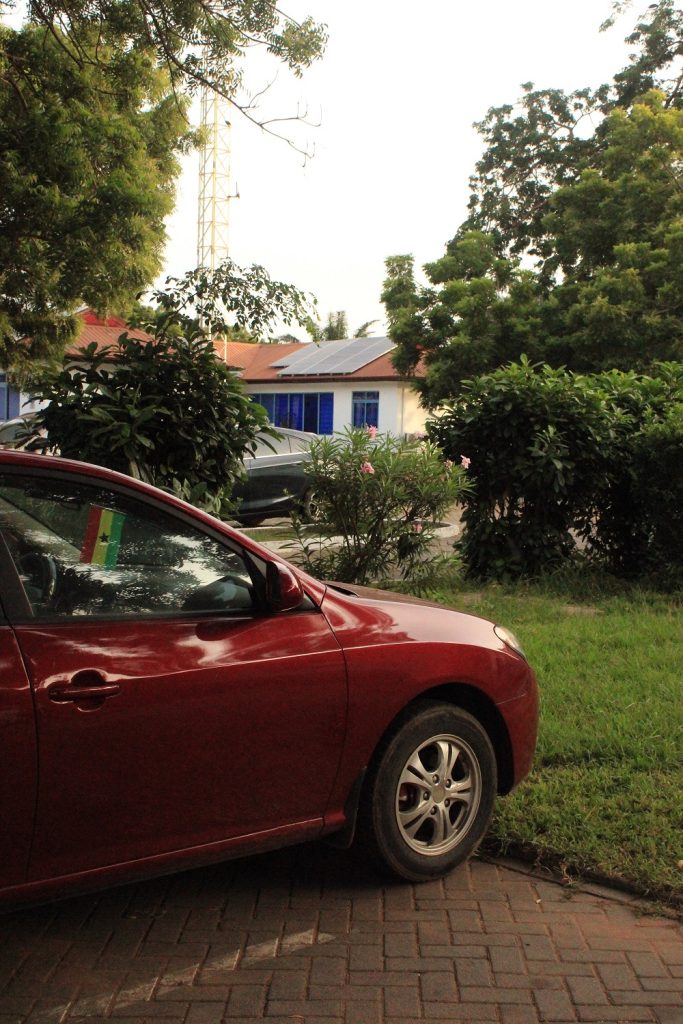
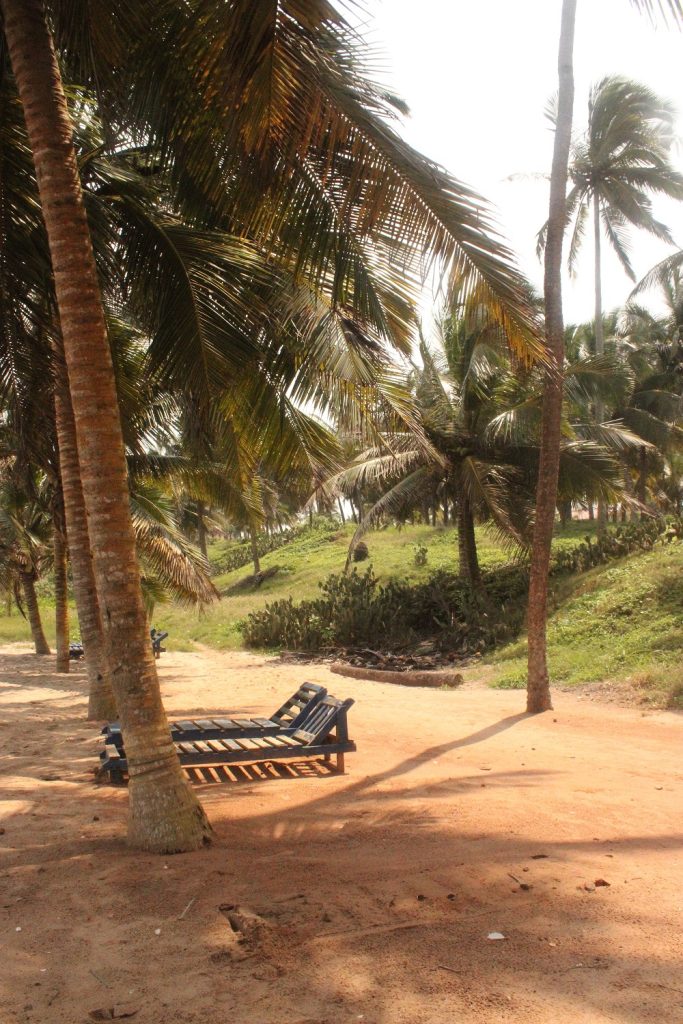
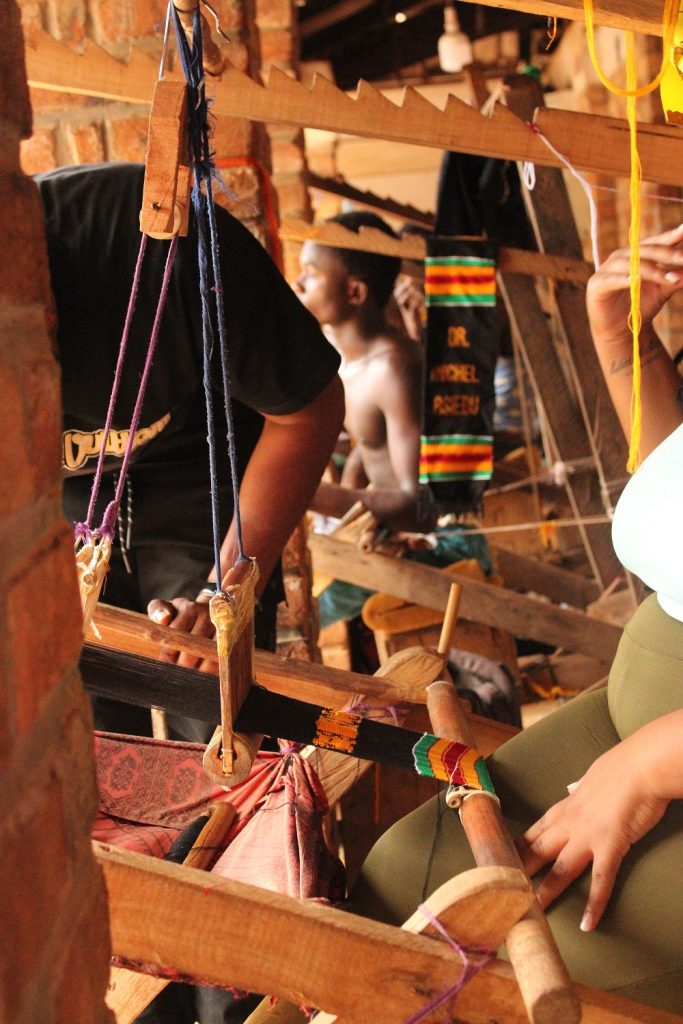
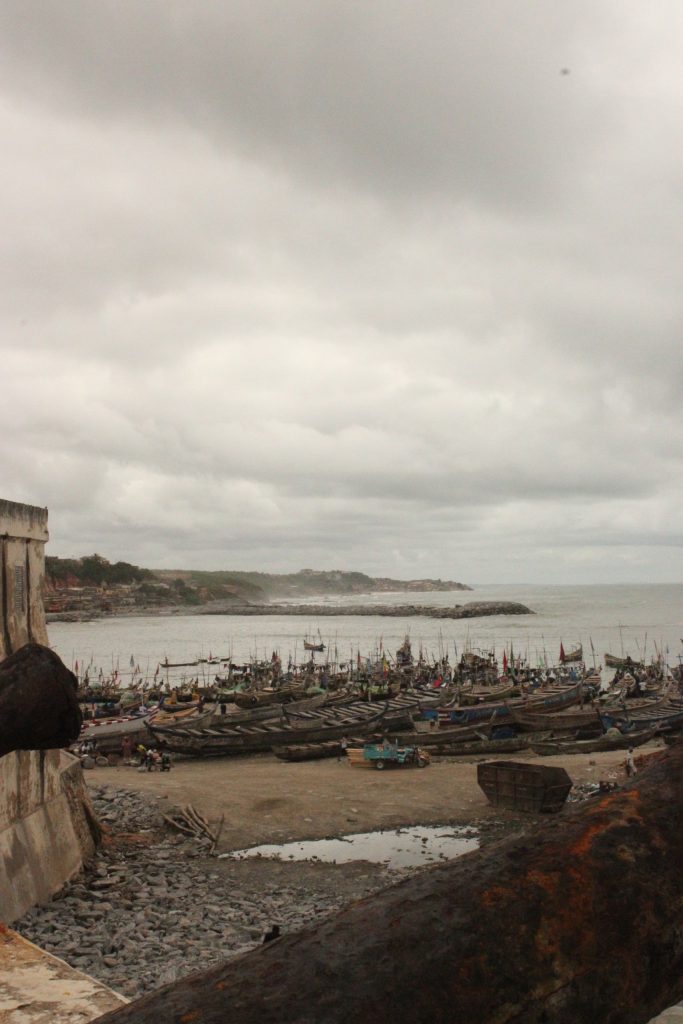
In between our first and second trip I unfortunately got really sick. While my condition was treatable and mild, I did fall ill for about a week. With going abroad I knew that I would eventually hit a major obstacle like this. Instead of letting it define my whole trip I kept an optimistic attitude. I wanted to include this small detail as it changed my whole perception of this journey. I got an unwavering amount of love and support from people in my hostel, ISEP, and the University of Ghana. This small amount of compassion meant a lot to me as I was nervous about possibly not having a lot of support in an emergency situation like this.
Our second trip was to Kumasi to visit the Ashanti region of Ghana. My family is from this region and also are a part of the Ashanti tribe. Seeing familiar faces, traditions, and clothing to this degree was the most beautiful part of my experience. We did many things on this trip including visiting the Craft Villages where we met various Ghana artisans including those who also specialized in kente weaving. To be able to see and talk to so many talented artisans as my
artist myself was another highlight of my trip. Since I was taking an Art history class in Ghana I
was able to relate a lot of the information I learned in class to my Experience in Kumasi.
Luckily, we also got the chance to visit the Manhyia Palace where we were informed about all the great Ashanti kings, queens, and warriors. A lot of which notably were women of different characteristics and backgrounds. Which is something new I learned while on this trip. We also saw the current reigning king of the Ashanti at the Akwasi dye festival. A festival that takes place every 40 days to commentate the king. The festival does a great job at highlighting a lot of the rich culture that Ghana has to offer. From the clothing to the gold everything from what we learned in class and through our wonderful tour guide (Sarah) and somehow connected and is also a part of me.
Outside of ISEP I also had a lot of interesting and meaningful experiences with the people in Ghana. I was able to volunteer and help create content for Play and Learn (an after school program for kids). Which was an experience that meant a lot to me and also sparked a new interest in photography! I also built friendships within my university which is where I really got the opportunity to come out of my comfort zone. Everyone was very receptive to me wanting to learn more about my own culture and also made the extra effort to help me. Whether that was through encouraging me to speak my native language or inviting me to different spaces I felt very welcomed.
Overall, this experience made me feel at home and I wholeheartedly recommend it to anyone with an open mind and a willingness to want to explore new cultures!
Faith Kutten (BS Biology) spent Summer 2024 studying abroad in Legon, Ghana through ISEP. Alex had the following to say about studying abroad, “Take the time to learn and cherish our differences.”
Share this post:
Leave a Reply